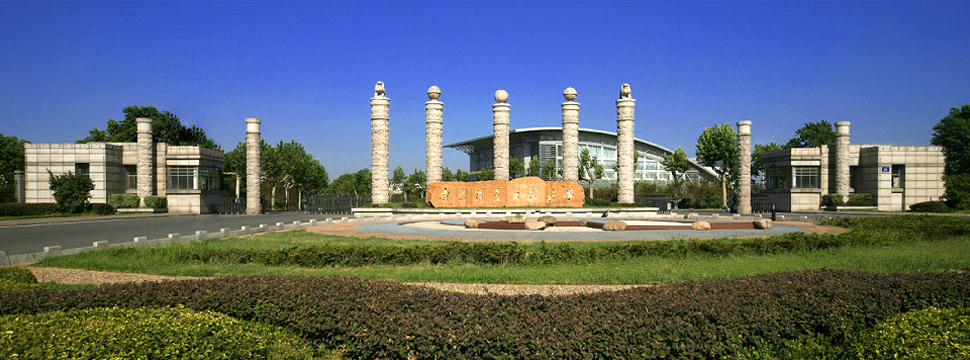Prof. Dr. Aniello Castiglione
University of Salerno, Italy
University of Naples Federico II, Italy
Title: Green Networking and Computing:
New Perspectives and Challenges within Energy-oriented Infrastructures and devices
Abstract: Energy consumption and the concomitant Green House Gas (GHG) emissions are becoming major issues in modern industrial society. In this scenario, current high performance network infrastructures (routers, switches, line cards, signal regenerators, optical amplifiers, etc.) have reached huge bandwidth capacity but their development has not been compensated at the same rate as for their energy consumption. It is estimated that such infrastructures alone consume 22 GW of electrical power corresponding to more than 1% of the worldwide electrical energy consumption, with a power consumption growth rate of 12% per year, further stressing the need for energy-efficient network devices and energy aware routing protocols and control planes. Analogously, the ever-increasing data volumes to be processed, stored, and accessed every day in modern data centers result in an energy demand growing a faster and faster pace. Data center power and cooling infrastructure worldwide waste more than 60 million MW hours per year of electricity that does no useful work powering IT equipment. This represents an enormous financial burden on industry and is a significant public policy environmental issue. Renewable energy sources are emerging as promising solution both to drastically reduce GHG emissions and to cope with the growing power requirements of these infrastructures, due to their lower energy costs. In particular, the dynamic distribution of computing and storage load in multiple data centers scattered throughout the world can be investigated in order to exploit the availability of renewable energy sources and lower their ecological footprint and contain the energy-related bills. Therefore, new energy-aware paradigms relying on smart grid infrastructure are emerging, able to either divert the network traffic on energy-efficient equipment or, analogously, to direct computing tasks or the data towards a site which is currently green powered (thus, in a follow-the-renewable energy manner), or to request to the smart grid a quantity and quality of energy (e.g., from an available renewable energy production site) for the facility (in a follow-the-data manner). Such energy-aware paradigms unveil new potentials for the ICT that have not been explored before. The main objective of this lecture is presenting the current challenges and research trends for eco-sustainable ICT infrastructures and the new energy-aware networking and computing models, protocols, architectures, techniques and paradigms that, considering power usage as a new constraint, optimize the use of energy and reduce the GHG emissions for achieving a more sustainable society that will be a basis for growth and prosperity. Also, some emerging energetic attacks to datacenters and mobile equipments are presented.
Bio:Aniello Castiglione (S’04–M’08) received the Ph.D. degree in Computer Science from the University of Salerno (Italy). Actually he is an adjunct professor at the University of Salerno (Italy) and at the University of Naples “Federico II” (Italy). He received the Italian national qualification as Associate Professor in Computer Science. He published more than 150 papers in international journals and conferences. He served as Program Chair and TPC Member in around 130 international conferences. One of his papers has been selected as “Featured Article” in the IEEE Cybersecurity initiative. He served as a Reviewer for several international journals and he is the Managing Editor of two ISI-ranked international journals. He acted as a Guest Editor in several journals and serves as Editor in several editorial boards of international journals. His current research interests include Information Forensics, Digital Forensics, Security and Privacy on Cloud, Communication Networks, and Applied Cryptography. He is a member of several associations, including IEEE and ACM. He has been involved in forensic investigations, collaborating as a consultant with several law enforcement agencies. From its establishment, he is a member of the European Electronic Crime Task Force (ECTF).
Distinguished Speakers
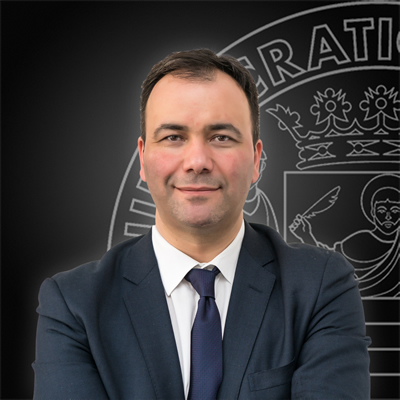

Prof. Ching-Nung Yang
National Dong Hwa University, Taiwan
Title: Error Correcting Codes in Data Hiding and Secret Image Sharing
Abstract: Secure digital imaging is an important research area combining methods and techniques coming from cryptography and image processing. This talk introduces two important secure digital imaging technologies based on error correcting code (ECC): one is data hiding (DH) and the other is secret image sharing (SIS). Both of them have wide and practical applications in modern digital environment.
The matrix coding (using ECC) based DH was first proposed by Crandall to improve embedding efficiency and meanwhile reduce the number of changed bits. Many ECC-based DH schemes were accordingly proposed, e.g., using Hamming code, BCH code, and Golay code. This talk will briefly describe some DH schemes using Hamming+1, Hamming-like, Golay+1, Golay+2, and unequal error protection (UEP). How to apply ECC-based DH on pixel domain or AMBTC algorithm, and combined with LSB and OPAP is also addressed.
Another topic in this talk is ECC-based SIS scheme. A (k, n)-SIS scheme is to share a secret image into n shadow images, and the secret image can be recovered from any k shadow images. However, one cannot obtain any secret information from (k-1) or fewer shadow images. In this talk, Reed Solomon (RS) code, a maximum distance separable code, based SIS scheme, and another two ECC-based (Hamming code and constant weight code) SIS schemes are described. Also, the relation of RS-code based SIS and polynomial based SIS is discussed.
Bio: Professor Ching-Nung Yang obtained his Ph. D. degree in Electrical Engineering from National Cheng Kung University. His B.S. and M.S. degrees, both were awarded in Department of Telecommunication Engineering from National Chiao Tung University. Dr. Yang served in National Dong Hwa University since 1999. His current title is Professor in Department of Computer Science and Information Engineering. He had been Visiting Professor to University of Missouri Kansas City, University of Milan, and University of Tokyo. He is currently a Fellow of IET (IEE) and an IEEE senior member. Professor Yang’s specialties include, but not limited to, error correcting code, multimedia security, cryptography, and information security. He has authored 2 books and has published over several hundred professional research papers in the areas of information security, multimedia security, and coding theory. In the meantime, he participates actively in international academic organizations. He serves as technical reviewers for over 40 major scientific journals in the areas of his expertise, and serves as editorial boards and editors of special issues for some journals. Also, he was invited as chairs, keynote speakers, and members of program committees for various international conferences. He is the recipient of the 2000, 2006, 2010, 2012, and 2014 Fine Advising Award in the Thesis of Master/PhD of Science awarded by Institute of Information & Computer Machinery.
National Dong Hwa University, Taiwan
Title: Error Correcting Codes in Data Hiding and Secret Image Sharing
Abstract: Secure digital imaging is an important research area combining methods and techniques coming from cryptography and image processing. This talk introduces two important secure digital imaging technologies based on error correcting code (ECC): one is data hiding (DH) and the other is secret image sharing (SIS). Both of them have wide and practical applications in modern digital environment.
The matrix coding (using ECC) based DH was first proposed by Crandall to improve embedding efficiency and meanwhile reduce the number of changed bits. Many ECC-based DH schemes were accordingly proposed, e.g., using Hamming code, BCH code, and Golay code. This talk will briefly describe some DH schemes using Hamming+1, Hamming-like, Golay+1, Golay+2, and unequal error protection (UEP). How to apply ECC-based DH on pixel domain or AMBTC algorithm, and combined with LSB and OPAP is also addressed.
Another topic in this talk is ECC-based SIS scheme. A (k, n)-SIS scheme is to share a secret image into n shadow images, and the secret image can be recovered from any k shadow images. However, one cannot obtain any secret information from (k-1) or fewer shadow images. In this talk, Reed Solomon (RS) code, a maximum distance separable code, based SIS scheme, and another two ECC-based (Hamming code and constant weight code) SIS schemes are described. Also, the relation of RS-code based SIS and polynomial based SIS is discussed.
Bio: Professor Ching-Nung Yang obtained his Ph. D. degree in Electrical Engineering from National Cheng Kung University. His B.S. and M.S. degrees, both were awarded in Department of Telecommunication Engineering from National Chiao Tung University. Dr. Yang served in National Dong Hwa University since 1999. His current title is Professor in Department of Computer Science and Information Engineering. He had been Visiting Professor to University of Missouri Kansas City, University of Milan, and University of Tokyo. He is currently a Fellow of IET (IEE) and an IEEE senior member. Professor Yang’s specialties include, but not limited to, error correcting code, multimedia security, cryptography, and information security. He has authored 2 books and has published over several hundred professional research papers in the areas of information security, multimedia security, and coding theory. In the meantime, he participates actively in international academic organizations. He serves as technical reviewers for over 40 major scientific journals in the areas of his expertise, and serves as editorial boards and editors of special issues for some journals. Also, he was invited as chairs, keynote speakers, and members of program committees for various international conferences. He is the recipient of the 2000, 2006, 2010, 2012, and 2014 Fine Advising Award in the Thesis of Master/PhD of Science awarded by Institute of Information & Computer Machinery.
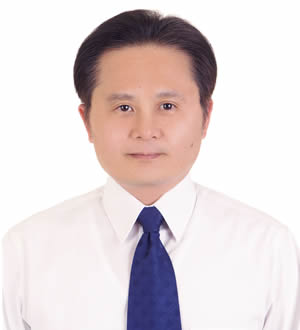
Prof. Ren-Hung Hwang
National Chung Cheng University, Taiwan
Title: SDN-enabled Cloud Data Center
Abstract: Software Defined Networking (SDN) technology has been considered an effective solution to cope with the various challenges of a cloud data center, such as high throughput, network virtualization, fast fault detection and recovery, and load balancing. Although some research have adopted a specially designed infrastructure, such as Fat tree, to simplify the aforementioned challenges, most data centers still adopt multi-rooted trees as the underlying infrastructure topology due to its flexibility and rapid development of high speed switches. In this work, we present a novel design of an SDN-enabled cloud data center which addresses important traffic engineering issues, including auto topology discovery, auto addressing, auto routing, load balancing, and fast fault detection and recovery. In particular, scalability issue of using SDN technology in data centers will be addressed in various aspects. Finally, performance evaluated by real implementation as well as the Mininet simulations will be reported.
Bio:Ren-Hung Hwang received his Ph.D. degree in computer science from University of Massachusetts, Amherst, Massachusetts, USA, in 1993. He joined the Department of Computer Science and Information Engineering, National Chung Cheng University, Chia-Yi, Taiwan, in 1993, where he is now a distinguished professor of the Department of Computer Science and Information Engineering. He served as the Dean of the College of Engineering during 1/1/2014 ~ 1/31/2017. He is currently on the editorial boards of Journal of Information Science and Engineering and The Scientific World Journal (Computer Science area). Prof. Hwang published more than 200 international journal and conference papers. He is also a co-author of the textbook "Computer Networks: An Open Source Approach" (www.mhhe.com/lin), with Ying-Dar Lin and Fred Baker (McGraw-Hill, 2011). He received the IEEE Best Paper Award from IEEE IUCC 2014 and the IEEE Outstanding Paper Award from IEEE IC/ATC/ICA3PP 2012. He was the guest editor of IEEE Network, special issue on "Open Source for Networking: Development and Experimentation," IET Communications, special issue on WiMAX Integrated Communications and the program chair of International Symposium on Pervasive Systems, Algorithms, and Networks (ISPAN), 2009. His current research interest is in Internet of Things, Cloud Computing, and Software Defined Networks. Prof. Hwang is a senior member of IEEE.
National Chung Cheng University, Taiwan
Title: SDN-enabled Cloud Data Center
Abstract: Software Defined Networking (SDN) technology has been considered an effective solution to cope with the various challenges of a cloud data center, such as high throughput, network virtualization, fast fault detection and recovery, and load balancing. Although some research have adopted a specially designed infrastructure, such as Fat tree, to simplify the aforementioned challenges, most data centers still adopt multi-rooted trees as the underlying infrastructure topology due to its flexibility and rapid development of high speed switches. In this work, we present a novel design of an SDN-enabled cloud data center which addresses important traffic engineering issues, including auto topology discovery, auto addressing, auto routing, load balancing, and fast fault detection and recovery. In particular, scalability issue of using SDN technology in data centers will be addressed in various aspects. Finally, performance evaluated by real implementation as well as the Mininet simulations will be reported.
Bio:Ren-Hung Hwang received his Ph.D. degree in computer science from University of Massachusetts, Amherst, Massachusetts, USA, in 1993. He joined the Department of Computer Science and Information Engineering, National Chung Cheng University, Chia-Yi, Taiwan, in 1993, where he is now a distinguished professor of the Department of Computer Science and Information Engineering. He served as the Dean of the College of Engineering during 1/1/2014 ~ 1/31/2017. He is currently on the editorial boards of Journal of Information Science and Engineering and The Scientific World Journal (Computer Science area). Prof. Hwang published more than 200 international journal and conference papers. He is also a co-author of the textbook "Computer Networks: An Open Source Approach" (www.mhhe.com/lin), with Ying-Dar Lin and Fred Baker (McGraw-Hill, 2011). He received the IEEE Best Paper Award from IEEE IUCC 2014 and the IEEE Outstanding Paper Award from IEEE IC/ATC/ICA3PP 2012. He was the guest editor of IEEE Network, special issue on "Open Source for Networking: Development and Experimentation," IET Communications, special issue on WiMAX Integrated Communications and the program chair of International Symposium on Pervasive Systems, Algorithms, and Networks (ISPAN), 2009. His current research interest is in Internet of Things, Cloud Computing, and Software Defined Networks. Prof. Hwang is a senior member of IEEE.
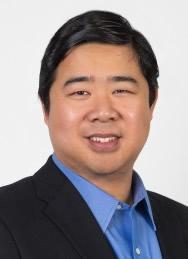
Dr. Neal N. Xiong
Northeastern State University, USA
Title: Trusted Fault tolerant cloud computing
Abstract: Cloud computing is an increasingly important solution for providing services deployed in dynamically scalable cloud networks. Services in the cloud computing networks may be virtualized with specific servers which host abstracted details. Some of the servers are active and available, while others are busy or heavy loaded, and the remaining are offline for various reasons. Users would expect the right and available servers to complete their application requirements. Therefore, in order to provide an effective control scheme with parameter guidance for cloud resource services, failure detection is essential to meet users service expectations. It can resolve possible performance bottlenecks in providing the virtual service for the cloud computing networks. Most existing Failure Detector (FD) schemes do not automatically adjust their detection service parameters for the dynamic network conditions, thus they couldn't be used for actual application.
Bio:Neal N. Xiong is currently an Associate Professor (3rd year) at Department of Mathematics and Computer Science, Northeastern State University, OK, USA. He received his both PhD degrees in Wuhan University (about sensor system engineering), and the Japan Advanced Institute of Science and Technology (about dependable sensor networks), respectively. Before he attended Northeastern State University, he worked at Georgia State University, Wentworth Technology Institution, and Colorado Technical University (as a full professor) about 10 years. His research interests include Cloud Computing, Security and Dependability, Parallel and Distributed Computing, Networks, and Optimization Theory.
Dr. Xiong published over 280 international journal papers and over 120 international conference papers. Some of his works were published in IEEE JSAC, IEEE or ACM transactions, ACM Sigcomm workshop, IEEE INFOCOM, ICDCS, and IPDPS. He has been a General Chair, Program Chair, Publicity Chair, PC member and OC member of over 100 international conferences, and as a reviewer of about 100 international journals, including IEEE JSAC, IEEE SMC (Park: A/B/C), IEEE Transactions on Communications, IEEE Transactions on Mobile Computing, IEEE Trans. on Parallel and Distributed Systems. He is serving as an Editor-in-Chief, Associate editor or Editor member for over 10 international journals (including Associate Editor for IEEE Tran. on Systems, Man & Cybernetics: Systems, Associate Editor for Information Science, Editor-in-Chief of Journal of Internet Technology (JIT), and Editor-in-Chief of Journal of Parallel & Cloud Computing (PCC)), and a guest editor for over 10 international journals, including Sensor Journal, WINET and MONET. He has received the Best Paper Award at the 10th IEEE International Conference on High Performance Computing and Communications (HPCC-08) and the Best student Paper Award at the 28th North American Fuzzy Information Processing Society Annual Conference (NAFIPS2009).
Dr. Xiong is the Chair of “Trusted Cloud Computing” Task Force, IEEE Computational Intelligence Society (CIS), and the Industry System Applications Technical Committee; He is a Senior member of IEEE Computer Society.
Northeastern State University, USA
Title: Trusted Fault tolerant cloud computing
Abstract: Cloud computing is an increasingly important solution for providing services deployed in dynamically scalable cloud networks. Services in the cloud computing networks may be virtualized with specific servers which host abstracted details. Some of the servers are active and available, while others are busy or heavy loaded, and the remaining are offline for various reasons. Users would expect the right and available servers to complete their application requirements. Therefore, in order to provide an effective control scheme with parameter guidance for cloud resource services, failure detection is essential to meet users service expectations. It can resolve possible performance bottlenecks in providing the virtual service for the cloud computing networks. Most existing Failure Detector (FD) schemes do not automatically adjust their detection service parameters for the dynamic network conditions, thus they couldn't be used for actual application.
Bio:Neal N. Xiong is currently an Associate Professor (3rd year) at Department of Mathematics and Computer Science, Northeastern State University, OK, USA. He received his both PhD degrees in Wuhan University (about sensor system engineering), and the Japan Advanced Institute of Science and Technology (about dependable sensor networks), respectively. Before he attended Northeastern State University, he worked at Georgia State University, Wentworth Technology Institution, and Colorado Technical University (as a full professor) about 10 years. His research interests include Cloud Computing, Security and Dependability, Parallel and Distributed Computing, Networks, and Optimization Theory.
Dr. Xiong published over 280 international journal papers and over 120 international conference papers. Some of his works were published in IEEE JSAC, IEEE or ACM transactions, ACM Sigcomm workshop, IEEE INFOCOM, ICDCS, and IPDPS. He has been a General Chair, Program Chair, Publicity Chair, PC member and OC member of over 100 international conferences, and as a reviewer of about 100 international journals, including IEEE JSAC, IEEE SMC (Park: A/B/C), IEEE Transactions on Communications, IEEE Transactions on Mobile Computing, IEEE Trans. on Parallel and Distributed Systems. He is serving as an Editor-in-Chief, Associate editor or Editor member for over 10 international journals (including Associate Editor for IEEE Tran. on Systems, Man & Cybernetics: Systems, Associate Editor for Information Science, Editor-in-Chief of Journal of Internet Technology (JIT), and Editor-in-Chief of Journal of Parallel & Cloud Computing (PCC)), and a guest editor for over 10 international journals, including Sensor Journal, WINET and MONET. He has received the Best Paper Award at the 10th IEEE International Conference on High Performance Computing and Communications (HPCC-08) and the Best student Paper Award at the 28th North American Fuzzy Information Processing Society Annual Conference (NAFIPS2009).
Dr. Xiong is the Chair of “Trusted Cloud Computing” Task Force, IEEE Computational Intelligence Society (CIS), and the Industry System Applications Technical Committee; He is a Senior member of IEEE Computer Society.
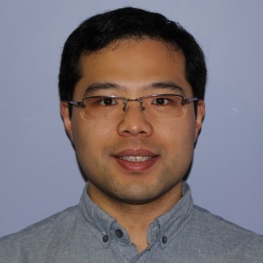
Dr. Zhifeng Bao
RMIT University, Australia
Title: Exploring the Geospatial Data: When Visualization Meets Query Processing
Abstract: In this talk, I will focus on exploring two types of Geospatial data: point data and trajectory data. I will first introduce the most recent system we have built for an interactive and visualized exploration of the location-centered real estate data in Australia for the last ten years (http://115.146.89.158/), namely HouseSeeker. Then, I will adopt a top-down approach from real applications to fundamental research problems, to illustrate several research achievements on seamlessly combining data visualization and data management techniques to enhance the usability of geospatial data. In particular: (1) problem - how to continuously (7*24) monitor the trending areas and houses based on user’s spatial range and KNN queries in streaming fashion; significance - facilitate buyers to find a desired property and for sellers to find the best time to enter the market to sell the house. (2) Problem - How to achieve Efficient selection of Geospatial data on maps for Interactive Visualized Exploration; Significance - to achieve the goal of representativeness, visibility, zoom consistency and movement consistency in one basket. (3) Problem – How different visualization designs help user find interesting patterns, help data cleaning, etc. Last, I will talk about our recent work on exploring the activity trajectory data for interactive trip planning and route planning in transportation.
Bio:Zhifeng Bao is an Assistant Professor (tenured) in Computer Science & IT, RMIT University, Australia. He received his PhD from National University of Singapore in 2011, as the only winner of the Best PhD Thesis Award in School of Computing and was the winner of the Singapore IDA (Infocomm Development Authority) gold medal. He was the winner of the Google Faculty Research Award 2015. His recent research interests are: query processing over geospatial data and trajectory data, interactive visualized data analytics, as well as data integration and cleaning. He regularly publishes in top venues such as ICDE, SIGMOD, VLDB, TKDE. He has won three Best Paper Awards (2016-2017) and four Best Paper Award Nominations (ICDE 2009, DASFAA 2012, CIKM 2014, ER 2014). His research is supported by Australian Research Council, Google and Australian Commonwealth Scientific and Industrial Research Organisation. Since 2016, he has secured more than 700K AUD research grants as Principal Investigator. He has served the program committee of 20+ top conferences such as SIGMOD18, VLDB17-18, ICDE16-17, SIGIR16-17, IJCAI16. He served the workshop track chair of DASFAA 2017, demo track chair of APWEB 2016 and Awards Committee Chair of ADMA 2016. Personal Homepage: https://sites.google.com/site/baozhifengcs/.
RMIT University, Australia
Title: Exploring the Geospatial Data: When Visualization Meets Query Processing
Abstract: In this talk, I will focus on exploring two types of Geospatial data: point data and trajectory data. I will first introduce the most recent system we have built for an interactive and visualized exploration of the location-centered real estate data in Australia for the last ten years (http://115.146.89.158/), namely HouseSeeker. Then, I will adopt a top-down approach from real applications to fundamental research problems, to illustrate several research achievements on seamlessly combining data visualization and data management techniques to enhance the usability of geospatial data. In particular: (1) problem - how to continuously (7*24) monitor the trending areas and houses based on user’s spatial range and KNN queries in streaming fashion; significance - facilitate buyers to find a desired property and for sellers to find the best time to enter the market to sell the house. (2) Problem - How to achieve Efficient selection of Geospatial data on maps for Interactive Visualized Exploration; Significance - to achieve the goal of representativeness, visibility, zoom consistency and movement consistency in one basket. (3) Problem – How different visualization designs help user find interesting patterns, help data cleaning, etc. Last, I will talk about our recent work on exploring the activity trajectory data for interactive trip planning and route planning in transportation.
Bio:Zhifeng Bao is an Assistant Professor (tenured) in Computer Science & IT, RMIT University, Australia. He received his PhD from National University of Singapore in 2011, as the only winner of the Best PhD Thesis Award in School of Computing and was the winner of the Singapore IDA (Infocomm Development Authority) gold medal. He was the winner of the Google Faculty Research Award 2015. His recent research interests are: query processing over geospatial data and trajectory data, interactive visualized data analytics, as well as data integration and cleaning. He regularly publishes in top venues such as ICDE, SIGMOD, VLDB, TKDE. He has won three Best Paper Awards (2016-2017) and four Best Paper Award Nominations (ICDE 2009, DASFAA 2012, CIKM 2014, ER 2014). His research is supported by Australian Research Council, Google and Australian Commonwealth Scientific and Industrial Research Organisation. Since 2016, he has secured more than 700K AUD research grants as Principal Investigator. He has served the program committee of 20+ top conferences such as SIGMOD18, VLDB17-18, ICDE16-17, SIGIR16-17, IJCAI16. He served the workshop track chair of DASFAA 2017, demo track chair of APWEB 2016 and Awards Committee Chair of ADMA 2016. Personal Homepage: https://sites.google.com/site/baozhifengcs/.
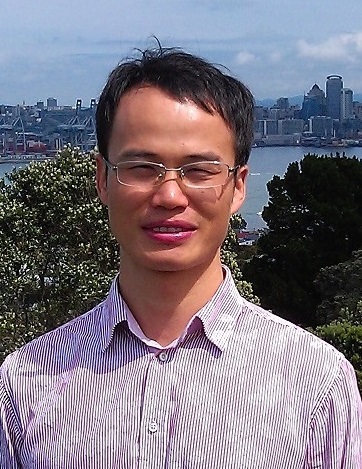
Dr. Zhangjie Fu
Nanjing University of Information Science and Technology, China
Title: Content-based Search over Encrypted Text Data in Cloud
Abstract: Searchable encryption is an important research area in cloud computing. However, most existing efficient and reliable ciphertext search schemes are based on keywords or shallow semantic parsing which are not smart enough to meet with users' search intention. In this talk, I will present a content-aware search scheme, which can make semantic search smarter. First, Conceptual Graphs (CGs) will be presented as a knowledge representation tool. Then two schemes (PRSCG and PRSCG-TF) based on conceptual graphs will be introduced according to different scenarios. In order to conduct numerical calculation, original CGs will be transferred into their linear form with some modification and mapped to numerical vectors. Next, multi-keyword ranked search over encrypted cloud data will be employed against two threat models, and PRSCG & PRSCG-TF are raised to resolve the problem of privacy-preserving smart semantic search based on conceptual graphs. Finally, a real-world dataset (CNN dataset) are chosen to test the scheme. The experiment results show that the proposed schemes are efficient.
Bio:Dr. Zhangjie Fu received his PhD in computer science from the School of Computer, Hunan University, China, in 2012. He is currently an Associate Professor at School of Computer and Software, Nanjing University of Information Science and Technology, China. He was a visiting scholar of Computer Science and Engineering at State University of New York at Buffalo from March, 2015 to March, 2016. His research interests include Cloud Security, Outsourcing Security, Digital Forensics, Network and Information Security. His research has been supported by NSFC, PAPD, and GYHY. Zhangjie is a member of IEEE and a member of ACM.
Nanjing University of Information Science and Technology, China
Title: Content-based Search over Encrypted Text Data in Cloud
Abstract: Searchable encryption is an important research area in cloud computing. However, most existing efficient and reliable ciphertext search schemes are based on keywords or shallow semantic parsing which are not smart enough to meet with users' search intention. In this talk, I will present a content-aware search scheme, which can make semantic search smarter. First, Conceptual Graphs (CGs) will be presented as a knowledge representation tool. Then two schemes (PRSCG and PRSCG-TF) based on conceptual graphs will be introduced according to different scenarios. In order to conduct numerical calculation, original CGs will be transferred into their linear form with some modification and mapped to numerical vectors. Next, multi-keyword ranked search over encrypted cloud data will be employed against two threat models, and PRSCG & PRSCG-TF are raised to resolve the problem of privacy-preserving smart semantic search based on conceptual graphs. Finally, a real-world dataset (CNN dataset) are chosen to test the scheme. The experiment results show that the proposed schemes are efficient.
Bio:Dr. Zhangjie Fu received his PhD in computer science from the School of Computer, Hunan University, China, in 2012. He is currently an Associate Professor at School of Computer and Software, Nanjing University of Information Science and Technology, China. He was a visiting scholar of Computer Science and Engineering at State University of New York at Buffalo from March, 2015 to March, 2016. His research interests include Cloud Security, Outsourcing Security, Digital Forensics, Network and Information Security. His research has been supported by NSFC, PAPD, and GYHY. Zhangjie is a member of IEEE and a member of ACM.
Sidebar Menu
Sponsors
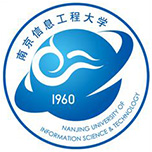
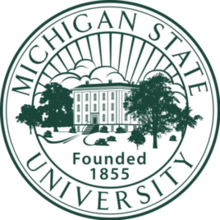
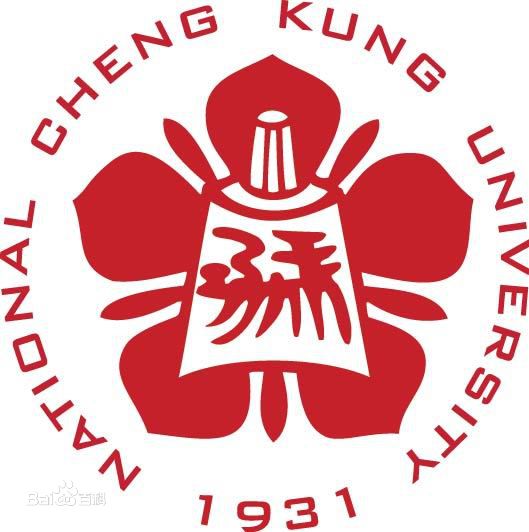
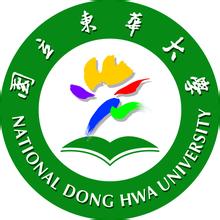

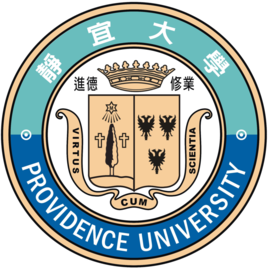
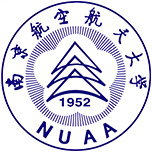
Co-sponsors
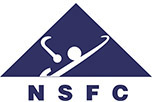
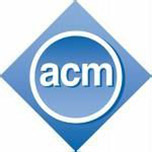

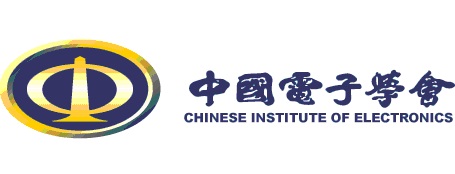
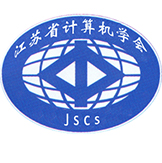
Supporters

